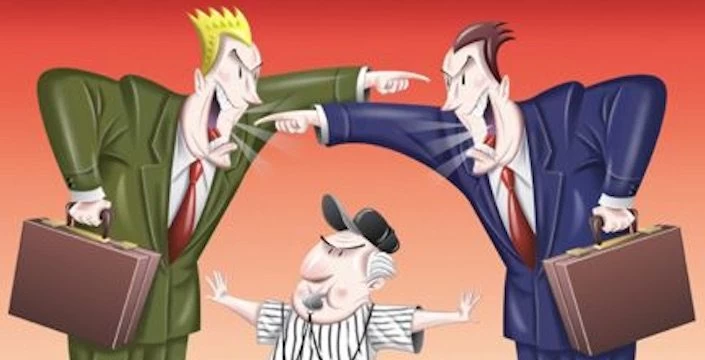Do you love taking part in team building activities? Would you like your company to do more of them? Are you unsure about how to talk to your manager about this? If your answers are all “yes,” this post is for you!
Maybe you enjoy the camaraderie and the opportunity to enhance your relationships with coworkers. Perhaps you appreciate the chance to give back to the community through corporate social responsibility (CSR) team building programs. Maybe you just welcome a break from the daily work routine to have fun and improve collaboration.
Whatever your motivations, you undoubtedly know that team building is much more than a fun way to strengthen workplace relationships. It provides tangible business benefits that make it well worth the time and investment. Here’s how to get started with pitching this idea to your manager, plus 12 business benefits of team building you can use to help make the case for team building to your boss.
Breaking the Ice
While you’ll want to discuss your ideas and suggestions with your boss face to face, it’s best to request a meeting by email or Slack to broach the topic and give your manager time to think about it before your conversation.
Though an in-person meeting is ideal, if you and your boss happen to work in different cities, then getting together online is fine (using Zoom, Google Meet, Teams, or whatever your corporate standard is).
Your email invitation should contain enough information to pique your manager’s interest but be kept as concise as possible. It doesn’t need to fully make the case for team building, but only needs to get your boss interested in having the discussion. Use three to five points from the list below (though you’ll want to be prepared to discuss all of these in your conversation).
The tone of your email should be professional but friendly. Not great with words? You can use ChatGPT to give you a head start.
12 Business Benefits of Corporate Team Building
Again, you may be most interested in enhancing your workplace relationships, doing something good for the local community, and/or having some fun during the work day. But to convince your boss to devote time and resources to this, you’ll need to make the business case for team building. Here are 12 tangible benefits to the organization.
1. Increase employee engagement
The key factors underlying employee engagement include opportunities for career advancement, a sense of purpose, and supportive coworkers, among others. Team building addresses all of these factors.
2. Build employee loyalty
Team building activities in general, but CSR programs specifically, have a strong, positive impact on employee loyalty. Organizations that commit to improving their local communities as well as the skills of their people become employers of choice—the types of enterprises that workers want to join and don’t want to leave.
3. Teach collaboration through competition
Employees compete throughout their professional lives: to get the best grades, get a great job, and get promoted within their organizations. But to help the company stand out in its market, employees need to collaborate. Team building at its best teaches collaboration skills through fun competitions.
4. Improve employee mental health and well-being
High-performing workplaces are built on strong relationships with coworkers and workplace well-being. According to Harvard Business Review, “By fueling our basic human psychological need for belonging, meaningful workplace connections drive many outcomes central to high-performing teams…Employees with close connections at work are more productive, creative, and collaborative.”
5. Enhance morale
Poor morale contributes to burnout, “quiet quitting,” low productivity, and ultimately turnover. The good news is that team building helps improve morale in ways that are more effective, more fun, and less costly than simply increasing compensation. It strengthens connections, creates a sense of shared purpose, and produces memorable experiences.
6. Create more effective teams
Team building programs help work teams become more productive- more quickly- by accelerating the four stages of team development: forming, storming, norming, and performing. Helping teams work through these stages outside the typical work environment enables them to move through those phases much faster within the workplace, more rapidly creating highly effective teams.
7. Build cohesion and collaboration in diverse work teams
Multiple research studies have shown the value of diversity in the workplace, not just in terms of race and ethnicity but also in terms of approaches and perspectives. Teams in which members think about problems differently generally arrive at better decisions. Team building helps members with different experiences and perspectives work together more effectively.
8. Bring people together in remote or hybrid work environments
It can be challenging to form and manage effective teams when people are working remotely or in a hybrid workplace model. But as noted here previously, it’s not where but how your people work that matters. And engaging in team building programs on a regular basis helps keep people connected, collaborative, and productive regardless of the workplace structure.
9. Help onboard new employees
Team building plays a vital role in new employee orientation by building trust, fostering personal connections, improving team dynamics, and creating shared experiences. Employees who go through a structured onboarding process are more likely to be happy, effective, and loyal than those left to just figure things out on their own.
10. Make new employees more productive faster
By breaking down barriers, building connections to coworkers, and helping align actions with team goals, team building helps employees get up to speed and contribute to the organization in less time.
11. Increase employee retention
Though the pace of voluntary employee churn has eased somewhat, slower workforce growth means the battle for talent will continue for years. Team building helps organizations retain talent as well as attract new workers and strengthen workplace relationships by making employees feel valued, recognized, and connected.
12. Help create and maintain high-performing teams
Research from Harvard Business Review has found that what sets high-performing teams apart is their commitment to fostering connections, bonding over non-work topics, and giving and receiving recognition. Team building helps with all of those elements. A regular cadence of programs enables organizations to develop and maintain a culture of high performance as team composition changes over time.
Recommending a Partner and Program Ideas
If you’ve done a solid job of persuading your manager that team building is valuable, their next question will likely be about making a recommendation. Something along the lines of “Okay, you’ve sold me on team building. What should we do next?”
This is your opportunity to demonstrate to your boss that you’re intelligent and proactive. If you’ve got them interested in the idea of team building, follow it up immediately with suggestions for next steps.
The first action is to choose a team building company to help organize and deliver the program. Key attributes to consider when selecting a team building provider include experience, expertise, originality, range of offerings, customer service, and of course reviews from previous clients.
The next step is to suggest just a few ideas for specific programs. You’ll want to cover your bases without giving your manager an overwhelming choice. The best type of team building program to select depends on what’s happening within your company.
For example, has it recently been part of a merger? Have there been layoffs? Are people concerned about how their jobs may be impacted by AI? Your team building partner should be able to conduct an assessment to help you choose the best type of program for your specific circumstances and objectives.
As noted here previously, virtually all team building programs provide the four core pillars of team building: improved communication, interpersonal relations, engagement, and fun. But different types of programs help achieve different goals.
Team building activities deliver action-packed fun while building collaboration and problem-solving skills, and include programs like A Minute to Win It!, Bridge to the Future, and Pipeline.
Game show programs like Jeoparody Live!, Spin It 2 Win It!, and Trivia Blast Live! deliver fast-paced, challenging fun. Keep it cerebral while enhancing the complexity and collaboration with activities like Mavericks Murder Mystery, Crack the Case!™, or an Amazing Chase SmartHunt®. Almost any of these programs can be delivered virtually as well as in person.
Corporate scavenger hunts combine exploration and learning with interactive technology and unique challenges in our City SmartHunts® and Amazing Chase SmartHunts®.
Finally, CSR programs combine team building with helping those in need, creating a memorable, emotionally powerful experience for participants. These programs can help a wide range of people and causes, from hunger and homelessness to kids and schools, seniors, veterans and active duty military, animal shelters, and those with mobility or neurological challenges. Examples include our Bike Build Donation, Build-a-Guitar®, Build-a-Wheelchair®, and Mini-Golf Build and Food Donation programs.
Wrapping It Up
You may enjoy team building activities because of the camaraderie, the opportunity to give back to the community, the fun break from the daily routine, or other reasons. But team building programs also provide compelling business benefits that make it well worth the investment of time and resources.
When presenting these benefits and making the case to your manager for arranging a team building event, it’s best to have a face-to-face meeting. Send a concise email ahead of time to request the meeting and introduce the topic, using a few of the most compelling business benefits of team building to spark interest.
Once you’ve laid out those benefits, be prepared to follow up immediately with recommendations regarding a team building partner and a few specific programs to consider. The partner you choose should offer a wide range of programs, have experience and expertise, a strong track record of client success, and excellent customer service.
Think carefully about what kind of team building activity you’d like to recommend. ny program will enhance collaboration, deepen workplace relationships, and challenge problem-solving skills, but some are geared more towards face-paced fun, others toward exploration, and others—CSR activities—toward combining the benefits of team building with giving back to the local community.
Now that you know how to talk to your manager, with a little planning and preparation, you can be an effective advocate for team building in your organization. You’ll improve teamwork and benefit the business in tangible ways while having a fun break from the daily routine!






